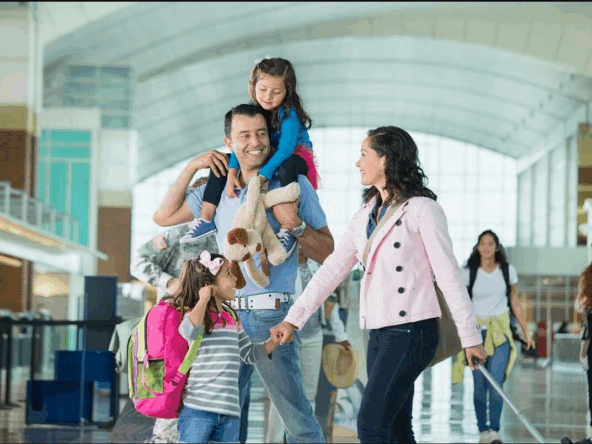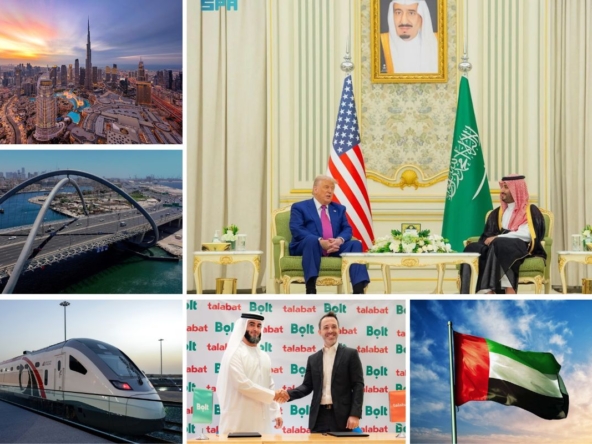From skyscrapers to opera houses, Mirwais Azizi is reshaping skylines and communities with a vision powered by legacy, humility, and heartfelt conviction
Inside a polished, marble-trimmed office at the Conrad Hotel in Dubai, Mirwais Azizi is seated in a leather armchair, surrounded by regal décor, an ornate chandelier above, and a discreet camera capturing every word — a routine measure for the billionaire founder of Azizi Developments.
Every moment here is precise and intentional. Conversations are logged, the setting speaks of vision and clarity — a direct reflection of Azizi’s detailed and far-reaching ambitions.
Despite the luxury, Azizi’s demeanor is modest and composed. Soft in tone, often smiling, he carries himself with ease — making one forget that he’s the mastermind behind massive real estate ventures, including the upcoming Burj Azizi, set to become the world’s second tallest skyscraper.
Azizi Developments hires 1,600 new employees, raising total staff to 36,000
The visionary behind hundreds of structures — now pursuing one of the world’s tallest towers — reclines thoughtfully. While occasionally brief in English, his words are sharp and vivid, as clear as the glass of a freshly completed high-rise.
In a rare appearance — his first major interview in over five years — the founder of Azizi Developments allowed a rare glimpse into the mindset shaping a multibillion-dollar legacy.
“Dubai is a good thing”
“In business, nothing stays the same forever,” Azizi begins, his voice laced with decades of hard-earned experience in Dubai’s dynamic real estate market. Though sometimes abrupt, his message is unmissable. “Markets fluctuate, go up and down — but Dubai, that’s a positive thing.”
His words come unfiltered, unscripted. Speaking on Dubai’s rebound post-global crisis, Azizi shares genuine impressions, not corporate jargon. “Dubai’s recovery happened so fast… The city’s infrastructure was already in place during COVID-19. Recovery here was quicker than anywhere else.”
For Azizi, the explanation lies in logic and foresight. He sees opportunity where others see disorder — praising Dubai’s strategic geography, well-planned infrastructure, and strong security as key reasons for its resilient bounce-back.
A developer for the people
Azizi’s eyes spark with excitement when the topic shifts to his most ambitious creation yet — Burj Azizi. “Second tallest tower. The most high-end tower globally,” he says. With prices ranging from AED 7.5 million up to AED 1 billion, he acknowledges, “It’s not easy for everyone to buy.”
Still, his brand is not just about extravagance. What defines him more is his focus on inclusivity across income brackets. “We’re building for the middle class and those with smaller incomes too… from studios to one, two, three-bedroom units — and yes, some ultra-premium offerings.”
“We aim to be everybody’s friend,” he emphasizes. “Even if someone buys a studio for less, we’ll make sure the quality is unmatched. The same care goes into everything.”
The ambitious $1.5 billion Burj Azizi will include a seven-star hotel, elite homes, penthouses, and a vertical mall
His tone turns heartfelt, “No one is born with wealth. We all arrive with nothing. Someone buying a studio deserves as much respect as someone buying a billion-dirham property. We treat both the same.”
Azizi’s words echo a sincere belief in equality — one that transcends social status or price tags.
After over 30 years in Dubai — where his kids have grown and started families of their own — he speaks about the city like one would about a beloved relative.
“My children began school here, studied, graduated, and now they’re parents,” he says warmly.
This deep-rooted personal history fuels his will to give back. “Money is nice, but I also want to build the city. If I gain something good, I want to return something good too.”
Among his ways of giving back is cultural investment. Azizi outlines firm plans to enrich communities: “We’re building a large community space, and within it, a beautiful opera house for 2,500 seats, and a theatre for 400 people. This will be our gift to Dubai.”
“Not everything has to be about profit,” he states. “We want to leave something lasting — a legacy for future generations.”
Although Mirwais Azizi is widely known for crafting skylines, his most lasting mark may lie in his humanity.
Azizi drew national attention by pledging AED 3 billion (USD $817 million) to build a hospital in Dubai after the loss of his daughter, Farishta — marking the UAE’s largest private donation in history.
The pledge was made in front of Sheikh Mohammed bin Rashid Al Maktoum, Vice President and Prime Minister of the UAE and Ruler of Dubai
“Tragically, two years ago, my daughter Farishta was diagnosed with cancer… On October 29 last year, she passed away. We buried her in Dubai — the place she called home,” he revealed.
“I now feel even more connected to this city, having placed a piece of my heart in its earth — like the soul’s link to the body,” he reflected.
This loss ignited a renewed drive to serve society. He commended Dubai’s education, medical services, and most importantly, its security. “As a father of girls, safety outside the home was vital — but we never had a reason to worry. Even our guests always felt safe and welcome. That’s the unique lifestyle Dubai offers to its people.”
“Sometimes, only deep personal loss reminds us of the humanity we all share,” he said.
Azizi expands globally – from Dubai to London, Australia, Germany & Canada
Firmly rooted in Dubai, Azizi now looks abroad. “Soon we’ll begin projects in Central London — around five or six high-rise buildings,” he disclosed.
His international plans roll off casually — Australia, France, Germany, Canada. Regarding Australia, he shared, “I kept promising — but now, I’ve made the decision. We’re expanding there.”
When asked if global real estate is becoming oversaturated, he quickly dismissed the idea. “The market is good. Business is good. Many companies will enter.”
“Everyone has their own naseeb, their kismat,” he says, then noticing a puzzled expression, smiles and adds, “I don’t understand by English.”
To him, increased competition is healthy. “More investors, more developers — it helps the city grow. It’s better for the people, and it helps control pricing.”
The Chairman says Azizi Developments aims to deliver 400-500 towers in five years. Image: Shutterstock
Looking five years ahead, Azizi describes it as a transformational era. The company plans to construct 400–500 towers in Dubai alone, alongside more than 70 hotels and dozens of retail and cultural projects.
His energy builds, “We’ll have theaters, opera venues, luxury malls — all our own projects.”
“In five years, Dubai’s entire appearance will be different,” he said confidently.
The perfection behind the process
Nothing shows Azizi’s personality more than the effort behind Burj Azizi. He personally oversaw over 1,000 meetings before construction began.
“Just preparing for construction took five years. Five years of planning,” he says. “Building it? That’s the easy part.”
This intense preparation extends even to smaller towers. “If we’re building something G+40 or 50 floors, the head of design shows me plans two or three times — each meeting only 15 minutes,” he notes.
“I now feel even closer to this city, having interred a piece of my heart in its soil, like the link between the body and the soul,” says Azizi
As the conversation wraps up, Azizi shares his final vision, “We aim to be the best — in quality, in services, in amenities.”
For him, business and community service are intertwined, “It’s not just about money. I must invest in spaces that serve people. I want to leave something meaningful for the next generation — something they can learn from and be proud of.”
He ends with one heartfelt purpose: “Make this city even more beautiful, more developed, and take pride in everything I’ve helped build.”
And behind the towering landmarks and the billion-dirham legacy, this is the essence of Mirwais Azizi — a man transformed by a city that welcomed him, and to which he gives his unwavering gratitude.
As he stands to leave the room, he shares one final line — a phrase that sums up his belief and optimism:
“Every day, I see something better and good. Good things are coming,” he concluded.


